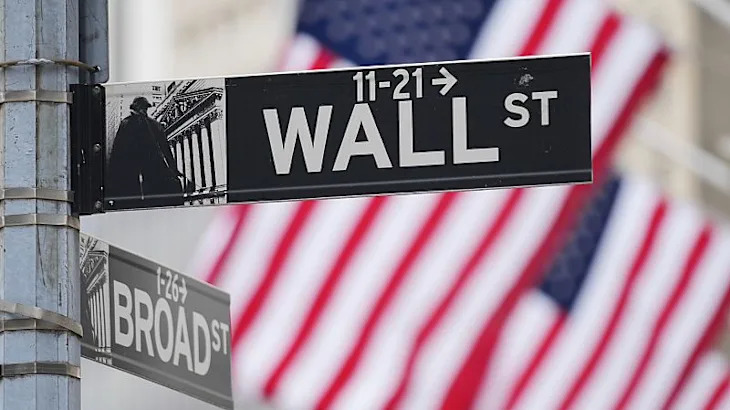
Dow and S&P drop as Trump's tariffs spark trade chaos on Wall Street
The S&P 500 was down 4% in morning trading in the US, worse than the drops for other major stock markets. The Dow Jones Industrial Average was down 1,520 points, or 3.6%, as of 10:10 a.m. Eastern time, and the Nasdaq composite was 4.0% lower.
Little was spared as fear flared globally about the potentially toxic mix of higher inflation and weakening economic growth that tariffs can create.
Everything from crude oil to Big Tech stocks to the value of the US dollar against other currencies fell. Even gold, which has hit records recently as investors sought something safer to own, pulled lower. Some of the worst hits walloped smaller US companies, and the Russell 2000 index of smaller stocks dropped more than 5% into what’s called a “bear market” after losing more than 20% from its record.
Investors worldwide knew Trump was going to announce a sweeping set of tariffs late Wednesday, and fears surrounding it had already pulled the S&P 500 10% below its all-time high last month. But Trump still managed to surprise them with “the worst case scenario for tariffs,” according to Mary Ann Bartels, chief investment officer at Sanctuary Wealth.
Related
Trump announced a minimum tariff of 10% on imports, with the tax rate running much higher on products from certain countries like China and those from the European Union. It’s “plausible” the tariffs altogether, which would rival levels unseen in roughly a century, could knock down US economic growth by 2 percentage points this year and raise inflation close to 5%, according to UBS.
Such a hit would be so frightening that it “makes one’s rational mind regard the possibility of them sticking as low,” according to Bhanu Baweja and other strategists at UBS.
Wall Street had long assumed Trump would use tariffs merely as a tool for negotiations with other countries, rather than as a long-term policy. But Wednesday’s announcement may suggest Trump sees tariffs more as helping to solve an ideological goal - wresting manufacturing jobs back to the United States, for example - than just an opening bet in a poker game.
If Trump follows through on his tariffs, stock prices may need to fall much more than 10% from their all-time high in order to reflect the global recession that could follow, along with the hit to profits that US companies could take. The S&P 500 is now down about 11% from its record set in February.
Related
“Markets may actually be underreacting, especially if these rates turn out to be final, given the potential knock-on effects to global consumption and trade,” said Sean Sun, portfolio manager at Thornburg Investment management, though he sees Trump’s announcement on Wednesday as more of an opening move than an endpoint for policy.